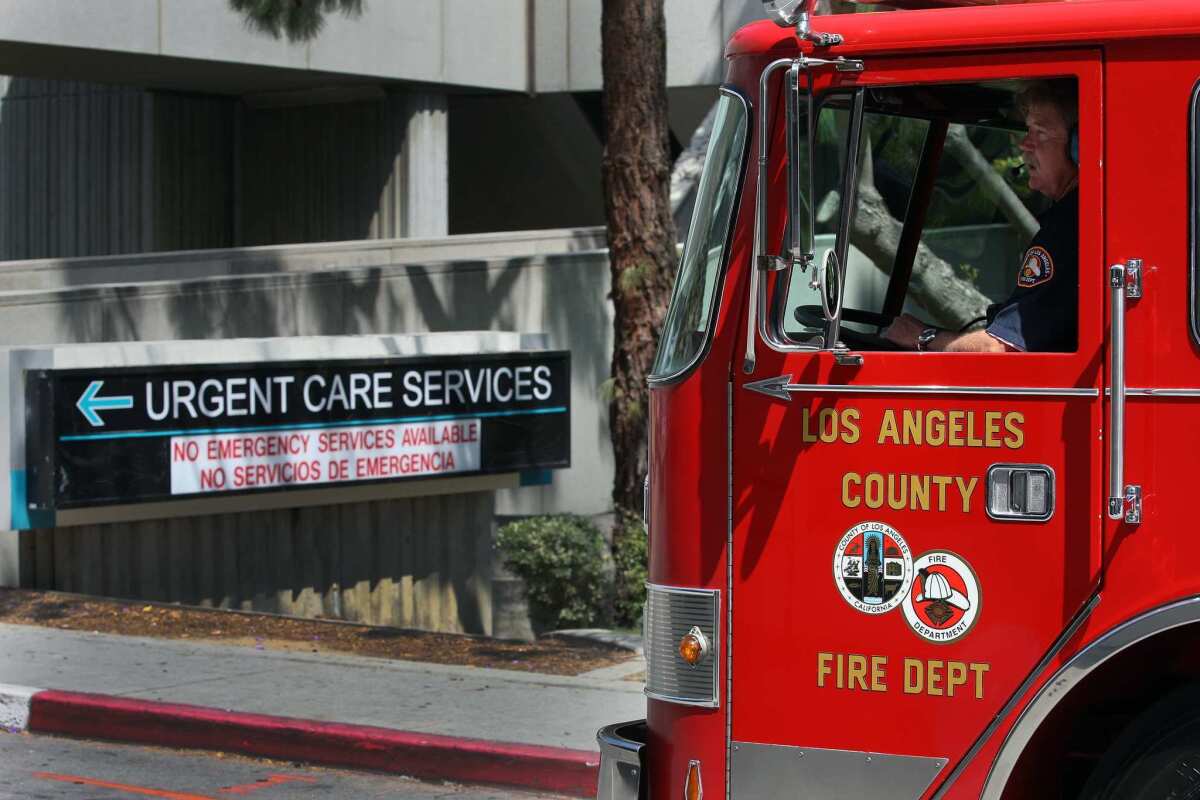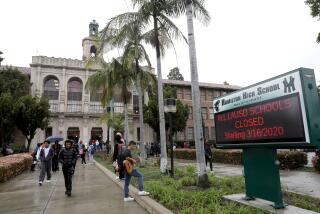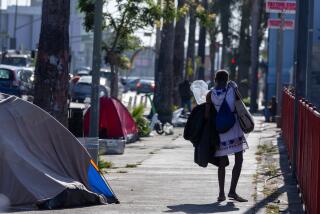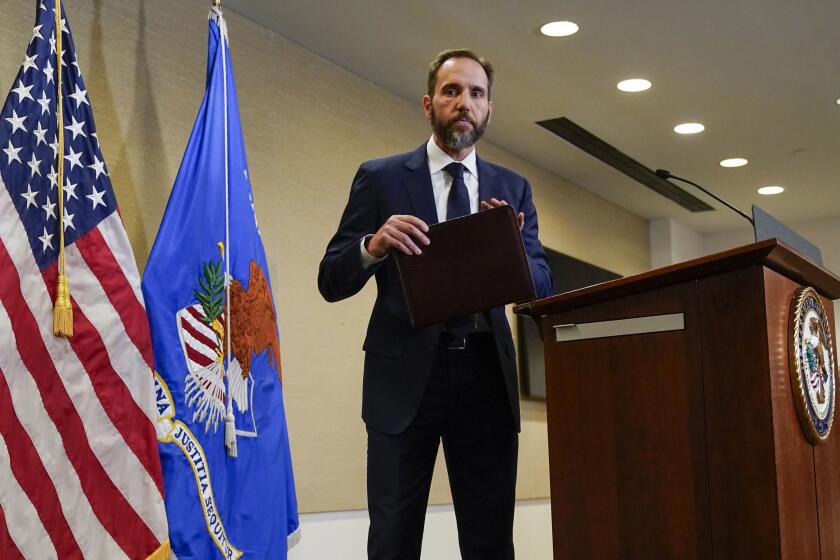Editorial: L.A. County supervisors are trying to sneak a last-minute tax measure on the ballot. Again

Let’s set aside for now the question of whether a parcel tax to support the Los Angeles County Fire Department is a good idea, and whether voters should say “yes” or “no” if a tax measure ultimately comes before them on the March 3 ballot. That’s a debate for after the holidays — although very soon after, because voting by mail begins in early February and voting at the polls starts soon after Presidents Day.
The question before us at present is why the Board of Supervisors always seems to wait until the last possible moment to sign off on ballot measures that seek to raise taxes, as it did with a proposed measure to impose a 6-cent-per-square-foot parcel tax. It makes the supervisors look sneaky. It makes it seem that they’re trying to limit discussion. Like they’re trying to scuttle potential opposition.
If the board were to have begun debating the issue in, say, September, there would have been opportunity for the public to weigh in, for the supervisors to respond to any concerns, and for the county to reshape the measure if need be. Instead, the board has waited to act on the tax proposal until Tuesday, which is its last meeting before the Friday deadline for getting a county measure on the March ballot.
Don’t the supervisors remember that they ran into trouble with this kind of thing before? The board put a county parks tax on the ballot in 2014, also at the last possible moment, thereby limiting public input. Bad move. Voters rejected the measure.
Similar story with a 2012 stormwater fee, which followed a slightly different procedure but was scuttled all the same when angry taxpayers said they had been given insufficient notice.
In both cases, supervisors argued that there would be plenty of opportunity to talk things over after they had finalized the measures, and before voting day. But voters, correctly, want more. They want to be part of the discussion to shape the measures that come before them.
L.A. city measures must follow a multi-part process that gives voters numerous chances to weigh in before final sign-off. Even state initiatives can been reshaped following public input. The county process, by comparison, appears quite closed.
The county has shown that it can indeed learn. It went back to the drawing board on both the parks and stormwater measures, did better public outreach and participation, and wrote better measures that ultimately passed.
None of this is to say the county failed to do its homework with the proposed fire tax. In the communities that rely on county fire protection, and where property owners would pay the tax, the Fire Department has done some serious community outreach and engagement, with numerous stakeholder meetings, surveys and a needs assessment. So has Supervisor Janice Hahn, who is leading the tax effort. The county has been at it since last December, after the catastrophic Woolsey fire. Discussions about how to give the Fire Department adequate resources date back at least a decade.
So why not a little more public notice in advance of the board’s vote?
The tax, which would apply only to properties in unincorporated county areas and in cities without their own fire departments, would cost property owners in affected areas an estimated $130 million annually. It’s a response more to the exploding need for paramedic services than to Woolsey-type wildfires, although fire protection arguably has weakened as existing resources have been channeled to paramedics. Not that there’s anything wrong with paramedics. Los Angeles County practically invented paramedic service 50 years ago at the urging of Supervisor Kenneth Hahn — father of the current Supervisor Hahn. In that half-century, paramedics have saved countless lives.
Do we already know that the department is properly structured to respond to the increasing need for paramedics over fire suppression? Do we know why an existing parcel tax that funds the department — Proposition E from 1997 — is insufficient? Do we know whether the department is efficiently managed, and that additional revenue is the only way to respond to additional needs? Do we know how the tax would fit in with various other revenue proposals on the state and local level to respond to wildfires?
The department and other supporters of the measure say that we do. Assuming the board votes to put the measure on the ballot, they’ll now have a short eight-week window to convince voters that they’re right.
More to Read
A cure for the common opinion
Get thought-provoking perspectives with our weekly newsletter.
You may occasionally receive promotional content from the Los Angeles Times.






